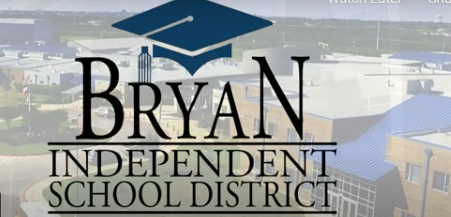What services should an educational consultancy offer?

Introduction:
In a world where educational choices abound, the role of educational consultancies has become increasingly pivotal. These consultancies serve as guiding lights, helping students and their families navigate the intricate landscape of academic opportunities. As the demand for personalized and informed guidance grows, it’s crucial to understand the array of services that an educational consultancy should offer. In this comprehensive guide, we explore the fundamental services that set a high-quality educational consultancy apart, ensuring that students receive tailored support on their journey to academic success.
Understanding the Purpose of Educational Consultancies:
Educational consultancies serve as indispensable guides, empowering students to navigate the intricate maze of academic choices. Their multifaceted role extends from primary school through postgraduate studies, offering nuanced guidance across a diverse spectrum of educational opportunities. Beyond merely facilitating admissions, these consultancies play a pivotal role in helping students unearth the ideal fit for their distinctive aspirations, leveraging their unique strengths and interests.
By providing comprehensive support, these entities become catalysts for informed decision-making, steering students toward not just academic institutions but tailored educational pathways that align seamlessly with their individual journeys towards success and fulfillment.
Key Services Offered by Educational Consultancies:
1. Academic Planning and Counseling:
– A fundamental service involves personalized academic planning and counseling. Consultants assess students’ academic strengths, interests, and goals to develop a strategic academic plan. This includes course selection, extracurricular recommendations, and guidance on enhancing academic performance.
2. College and University Guidance:
– One of the core offerings is assistance with college and university selection. Consultants should have in-depth knowledge of a wide range of institutions, considering factors such as academic programs, campus culture, and location to help students make well-informed choices.
3. Admissions Strategy and Application Assistance:
– Crafting a compelling application is an art, and educational consultancies guide students through this process. From formulating admissions strategies to providing detailed assistance with application materials, consultants play a crucial role in presenting students in the best possible light to admission committees.
4. Standardized Testing Guidance:
– Navigating standardized tests like the SAT, ACT, GRE, or GMAT can indeed be challenging. Renowned educational consultancies, such as Command Education, stand out for their comprehensive approach to offering expert guidance on test preparation strategies. Services provided by institutions like Command Education encompass a rich array of resources, personalized study plans, and simulated mock tests.
These invaluable offerings are meticulously designed to empower students, ensuring they are well-prepared and positioned to perform at their absolute best when undertaking these pivotal assessments. The expertise of such reputable consultancies significantly contributes to students’ success in mastering standardized tests and securing their academic futures.
5. Career Counseling and Exploration:
– Beyond college admissions, consultancies should provide career counseling services. This involves helping students explore potential career paths, understand market trends, and align their academic choices with future professional goals.
6. Study Abroad Programs:
– For students seeking international experiences, educational consultancies should facilitate study abroad programs. This includes guidance on choosing the right destination, understanding visa requirements, and identifying academic programs that align with the student’s goals.
7. Financial Aid and Scholarship Assistance:
– Navigating the financial aspect of education is crucial. Educational consultancies should offer guidance on financial aid options, scholarship opportunities, and strategies to manage educational expenses effectively.
8. Specialized Educational Services:
– Some students may require specialized educational services, such as support for learning differences, language proficiency improvement, or talent development programs. A quality consultancy should be equipped to address diverse educational needs.
9. Parental Guidance and Workshops:
– Recognizing the role of parents in the educational journey, consultancies may offer parental guidance sessions and workshops. These sessions can provide insights into the changing landscape of education, admissions processes, and ways parents can support their children effectively.
10. Transition Support:
– Moving from one educational level to another can be a significant transition. Educational consultancies should offer support during these transitions, ensuring a smooth adjustment to new academic environments and challenges.
11. Online Education Guidance:
– With the rise of online education, consultancies should be well-versed in guiding students through the intricacies of virtual learning. This includes helping students choose reputable online programs and understand the unique dynamics of virtual education.
Qualities of a Comprehensive Educational Consultancy:
1. Experienced and Knowledgeable Consultants:
– A high-quality consultancy should have a team of experienced and knowledgeable consultants with diverse backgrounds in education. Their expertise should cover various academic levels and specializations.
2. Personalized Approach:
– The hallmark of an effective consultancy is a personalized approach to each student. Consultants should take the time to understand individual strengths, weaknesses, and aspirations, tailoring their guidance accordingly.
3. Ethical Practices:
– Ethical standards should underpin all consultancy services. This includes transparent communication, honesty about potential outcomes, and a commitment to the best interests of the student.
4. Up-to-Date Information:
– The educational landscape is dynamic, with changes in admissions policies, testing requirements, and program offerings. A reputable consultancy should stay abreast of these changes, providing students with the most up-to-date information.
5. Global Perspective:
– In an increasingly globalized world, a consultancy with a global perspective can offer valuable insights into international opportunities, diverse educational systems, and cross-cultural experiences.
6. Comprehensive Resources:
– Educational consultancies should provide a robust set of resources, including study materials, test prep tools, and access to databases of institutions and programs. These resources enhance the overall support offered to students.
7. Track Record of Success:
– A consultancy’s track record is a testament to its effectiveness. Look for evidence of successful student placements, positive testimonials, and a history of guiding students to institutions that align with their goals.
Common Misconceptions and Red Flags:
1. Guaranteed Admissions:
– Be cautious of consultancies that guarantee admission to specific institutions. Admissions decisions are ultimately at the discretion of the institutions, and ethical consultancies provide realistic expectations.
2. One-Size-Fits-All Approaches:
– Education is a highly individualized journey, and consultancies offering generic, one-size-fits-all solutions may not provide the tailored guidance needed for success.
3. Overemphasis on Rankings:
– While reputable institutions are important, an overemphasis on rankings without considering the student’s unique needs and preferences can be a red flag. The right fit goes beyond prestige.
4. Unrealistic Promises:
– Be wary of consultancies that make unrealistic promises about rapid academic improvements or guaranteed scholarships. Ethical consultancies provide practical and achievable guidance.
5. Lack of Transparency:
– Transparency is key in any consultancy relationship. If a consultancy is not clear about its services, fees, or the potential outcomes of its guidance, it may raise concerns about its professionalism.
Conclusion: Empowering Educational Journeys
In the ever-evolving landscape of education, a comprehensive educational consultancy serves as a beacon, guiding students through the complexities of academic choices. By offering personalized support, staying abreast of educational trends, and maintaining a commitment to ethical practices, these consultancies empower students to make informed decisions that set the stage for a successful and fulfilling educational journey. As families navigate the vast array of educational opportunities, a high-quality consultancy becomes an invaluable partner, ensuring that each student’s unique potential is recognized and nurtured on the path to academic achievement.




